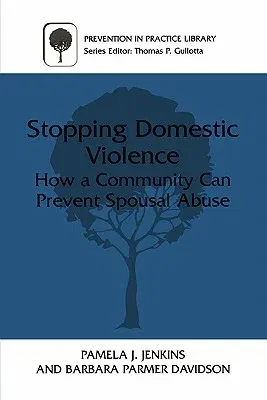Pamela J Jenkins
(Author)Stopping Domestic Violence: How a Community Can Prevent Spousal Abuse (Softcover Reprint of the Original 1st 2001)Paperback - Softcover Reprint of the Original 1st 2001, 30 April 2001

Qty
1
Turbo
Ships in 2 - 3 days
In Stock
Free Delivery
Cash on Delivery
15 Days
Free Returns
Secure Checkout

Part of Series
Prevention in Practice Library
Part of Series
Prevention in Practice Library (Paperback)
Part of Series
Prevention in Practice Library Prevention in Practice Librar
Print Length
124 pages
Language
English
Publisher
Springer
Date Published
30 Apr 2001
ISBN-10
0306464837
ISBN-13
9780306464836
Description
Product Details
Book Edition:
Softcover Reprint of the Original 1st 2001
Book Format:
Paperback
Country of Origin:
US
Date Published:
30 April 2001
Dimensions:
22.96 x
15.39 x
1.04 cm
ISBN-10:
0306464837
ISBN-13:
9780306464836
Language:
English
Location:
New York, NY
Pages:
124
Publisher:
Series:
Weight:
208.65 gm